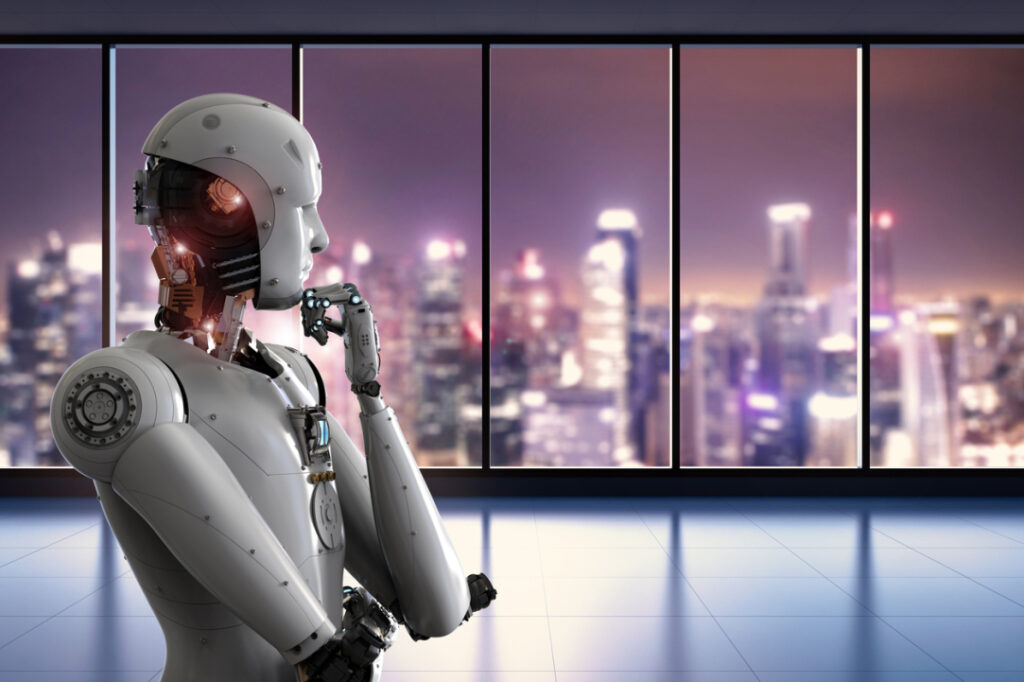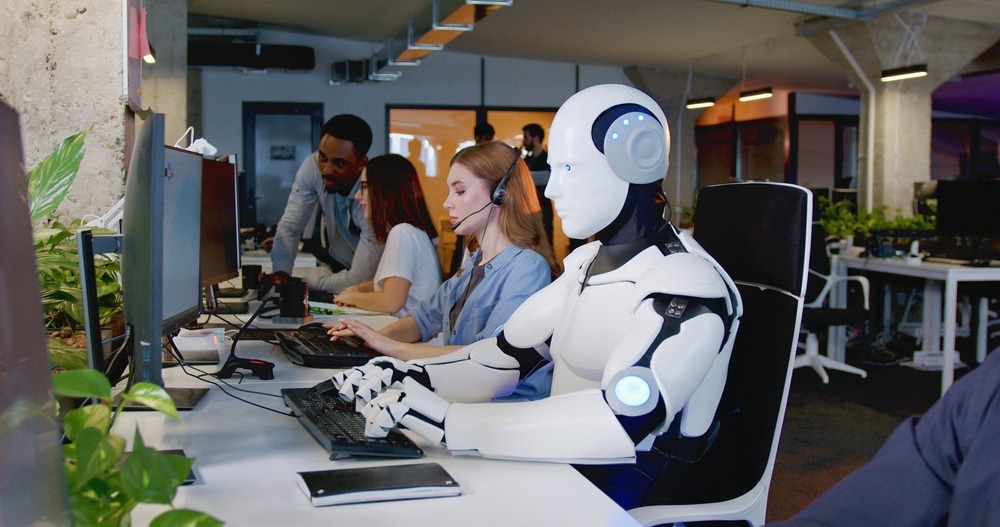Artificial Intelligence (AI) is not just a technological buzzword anymore—it’s an integral part of our world, quietly shaping industries, businesses, and even our daily lives. The power of AI lies in its ability to turn complex algorithms into actionable insights, transforming data into valuable knowledge that drives decision-making, innovation, and efficiency.
We’ve all heard the term “AI,” but what does it really mean in the context of today’s world? Let’s explore the revolution AI is igniting, how it’s transforming industries, and why it’s more than just a collection of algorithms.
1. What’s the Big Deal About AI?
At its core, AI is the simulation of human intelligence processes by machines, particularly computer systems. These processes include learning, reasoning, problem-solving, and even understanding natural language. But what sets AI apart from traditional programming is its ability to learn from data, adapt to new inputs, and improve over time. The more data it consumes, the smarter and more efficient it becomes.
It’s like having a colleague who never sleeps, learns quickly, and can process mountains of data without breaking a sweat. The best part? Unlike your colleague, it doesn’t need coffee to stay on track!
2. From Algorithms to Insights: The Magic of Data
AI starts with algorithms, mathematical models that are designed to process and analyze data. These algorithms are like recipes—when provided with the right ingredients (data), they can create something extraordinary.
But here’s the catch: raw data is often just a jumble of numbers, words, or images without context. AI algorithms are designed to make sense of this chaos, extracting patterns and trends that are not immediately obvious. Once the data is processed, the real magic happens—insights emerge. These insights are valuable because they provide actionable recommendations or predictions that can drive decision-making.
For instance, AI can analyze customer behavior on an e-commerce website, predicting which products are likely to sell best based on browsing habits. Or it can help identify healthcare trends, predicting potential outbreaks or medical conditions before they become widespread.
AI turns mountains of raw data into something more—actionable intelligence that’s easy to digest and use. It’s like having a personal guide who can walk you through a maze of numbers and show you the quickest path to success.
3. AI’s Role Across Industries: A Game-Changer
Healthcare: Saving Lives with Smarter Data
One of the most impactful ways AI is revolutionizing industries is in healthcare. Traditionally, doctors rely on years of experience and education to make diagnoses, but AI is changing the game by helping them make more accurate and timely decisions.
AI-driven tools can analyze medical images to detect early signs of diseases like cancer, even before human eyes can spot them. But it doesn’t stop there. AI is also assisting in drug discovery by predicting how molecules will behave, speeding up the research process and leading to quicker development of life-saving medications.
And let’s not forget the personalized medicine revolution, where AI analyzes a patient’s genetic data to create customized treatment plans. It’s like giving doctors a supercharged, data-driven toolkit.
Finance: Smarter Decisions, Faster
In the world of finance, AI is improving decision-making by processing vast amounts of financial data in real-time. From algorithmic trading to fraud detection, AI is helping financial institutions make smarter, faster decisions.
AI can predict market trends and advise investors on the best opportunities, while also flagging suspicious transactions to prevent fraud. In fact, AI’s ability to recognize patterns and anomalies is making it a valuable ally in the fight against financial crime. It’s like having a financial wizard who can predict market shifts and detect fraudulent activities faster than a human could ever imagine.
Marketing: Personalized Experiences at Scale
AI is also transforming marketing by enabling hyper-personalized experiences. Gone are the days of one-size-fits-all campaigns. Now, AI can analyze consumer behavior, preferences, and even emotions to create tailored marketing strategies. Whether it’s recommending a product based on your browsing history or crafting an email that speaks directly to your interests, AI helps brands connect with their customers on a more meaningful level.
It’s like having a marketing expert who knows exactly what you want, even before you do. And it doesn’t stop there—AI can optimize campaigns in real-time, making adjustments to ensure maximum engagement and return on investment.
Retail: Revolutionizing Shopping Experiences
In the retail sector, AI is making shopping more convenient and enjoyable. From personalized product recommendations to automated customer service, AI is enhancing the consumer experience in ways that weren’t possible before.
Ever wondered how websites like Amazon seem to know exactly what you want to buy next? It’s AI working behind the scenes, analyzing your shopping habits and suggesting products you’re likely to love. But AI doesn’t just stop at recommendations—it’s also optimizing inventory management, predicting which products will be in demand, and improving supply chain efficiency.
AI is making it easier for both customers and businesses to get what they need, faster and more efficiently. It’s like having a store assistant who never sleeps and always knows what you want.
4. The Challenges: Can We Keep Up?
As much as AI is transforming industries, it’s not without its challenges. One of the biggest hurdles is ensuring that AI is ethical and transparent. Since AI systems are only as good as the data they are trained on, if the data contains bias, AI can perpetuate and even amplify those biases.
Moreover, as AI continues to evolve, questions around privacy and security become more important. With the vast amounts of personal data AI can access, how do we ensure that this information is kept safe and not misused?
AI’s role in the job market is also a topic of concern. While AI can automate repetitive tasks, it also raises the question: will AI take over jobs traditionally done by humans? The key challenge here is finding a balance between leveraging AI’s power and ensuring that workers are retrained and reskilled for the jobs of the future.
5. The Future of AI: What’s Next?
As we look ahead, the future of AI seems limitless. From autonomous vehicles to advanced robotics, AI will continue to shape the way we live and work. With machine learning and deep learning powering even more advanced algorithms, the insights AI can provide will become even more accurate and valuable.
But the true potential of AI lies in its collaboration with humans. AI isn’t meant to replace us—it’s here to amplify our abilities, make our lives easier, and help us solve problems we never thought possible. The future of AI is not about machines replacing humans; it’s about machines working alongside us to make the world a better, more efficient place.
From algorithms to insights, the AI revolution is here, and it’s just getting started. Embrace the change, adapt to the technology, and get ready for a future where AI helps us unlock possibilities we’ve only dreamed about.




